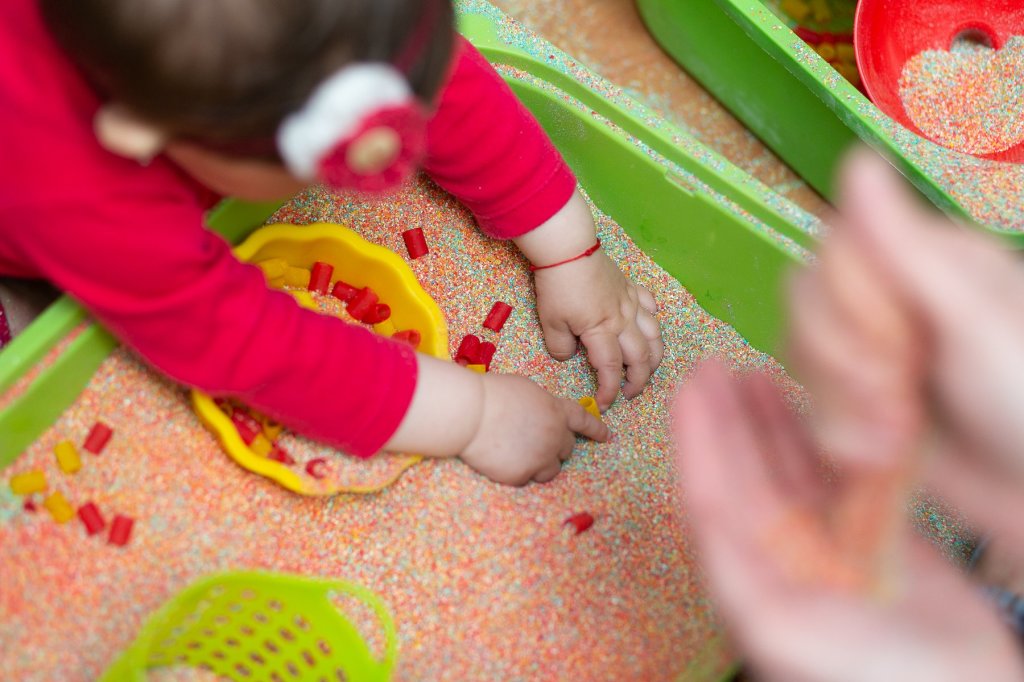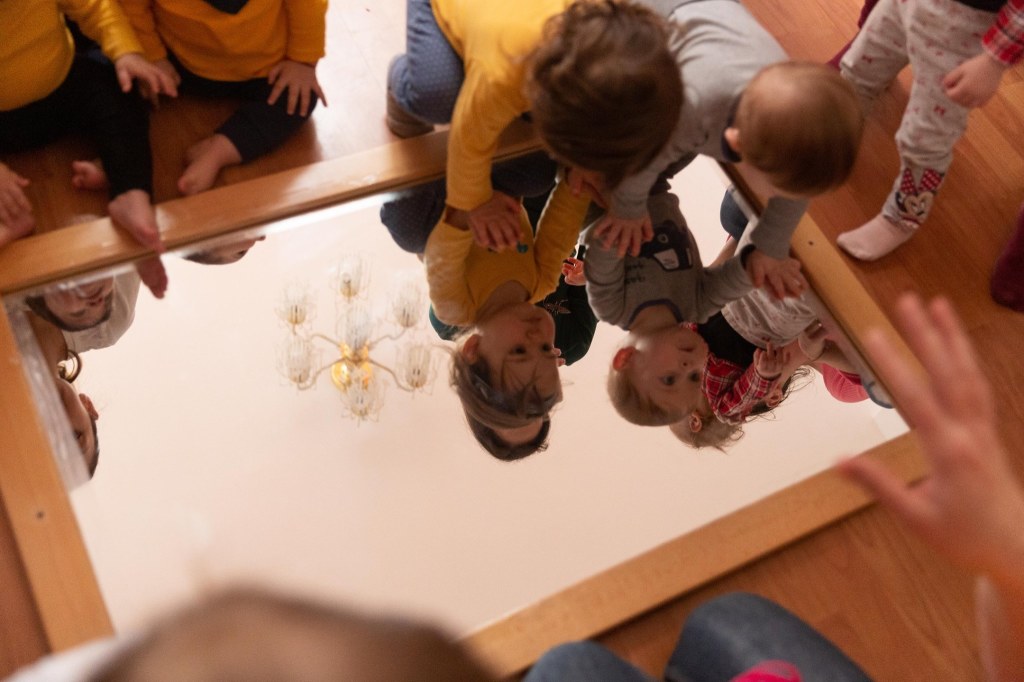When we talk about early education, we also talk about activities that we can do with children to engage their senses and make them discover new things about the surrounding environment. Such an activity is sensory play. It should be introduced for babies aged 5 to 6 months because it offers opportunity for exploration while developing physical, creative, linguistic, cognitive, social and emotional abilities.
Did you know that by the age of 3, the child’s brain develops more than it will do the rest of their life? According to researchers at the Center on the Developing Child, Harvard University, more than 1 million neural connections are created every second, thus enhancing body functions, emotions and cognitive processes.
That is why the experiences and activities that children partake during this period have such a significant impact on shaping and developing their abilities.
What is sensory play?
Sensory play can be any activity that stimulates the child’s senses while offering possibilities for exploration and learning. One of the benefits of sensory play is that it can happen anywhere and can include everything around us. Depending on the sensation they engage, sensory games can focus on touching, seeing, hearing, smelling and tasting.
Types of games and their benefits in child development
Developing cognitive skills with sensory baskets
With different compositions, colors and textures, sensory baskets are simple game variants that can also be created at home. All you need a plastic box, because the possibilities of materials and objects that you can use to fill it are unlimited. Depending on the theme chosen or the game idea, you can add rice, cereals, corn and beans and mix them with pieces of paper or plastic objects.
More than just touching different textures, children will be faced with discovering and understanding different concepts. They will also be introduced to mathematical concepts such as comparing sizes (large vs. small), matching, sorting and classifying. They will also develop scientific skills, such as determining the cause and effect (what happens when we add water over sand?), gravity (water slides down into the funnel, not up) and aggregation states (observing the ice melt).
Enhancing fine motor skills with colourful spaghetti worms
Whether we refer to exploring materials or manipulating, blending, measuring or moving, sensory games favor the acquisition and improvement of motor skills. A fun game that calls for fine moves is finding and catching spaghetti worms from a tray or a box filled with earth or sand. First you boil the spaghetti (you can add food coloring in the water if you like) and then you hide it underneath a layer of earth/sand. This way you can provide a fun challenge for the child to find the worms and catch them, either with their fingers or with a plastic tweezers.
Another way is to use colored pasta to create various shapes and paintings.
Improving observation skills using a mirror
A mirror will attract children because they can observe their own reflection or that of objects and it provides an excellent opportunity for self-learning and self-knowledge. Place the mirror on the floor, add objects, beans, buttons or paint on top of it and let the child interact with them. They will discover new perspectives of themselves and the objects they play with and hear the sounds their fingers make on the surface.
Developing language skills with gelatin
Sensory play encourages children to use descriptive and expressive language and add meaning to words and concepts that would otherwise sound empty to them . Gelatin, slime or dough helps the little ones discover the true meaning of words such as: slippery, thin, soft, shiny or sticky.Encourage children to take gelatin in their hand and watch them react while they describing in words what they see and feel.
Encouraging sociability while playing with ribbons
Sensory play can also teach children about cooperation and collaboration. “As children work together or next to each other, they start to understand someone else’s point of view. It is also an opportunity for children to express themselves and become confident in sharing their ideas with others,” says Angie Dorrell, NAEYC specialist (National Association for the Education of Young Children).
Tie a few colorful ribbons of different sizes to a stand or a tree let the children interact, jump to reach the ribbons, share them or play hide and seek between them.
Sensory play dates are recurring events that we hold frequently in Acorns kindergartens. where we periodically address interesting themes for children and parents alike, thus contributing to the baby’s optimal development and adding to the special link between parent and child.



